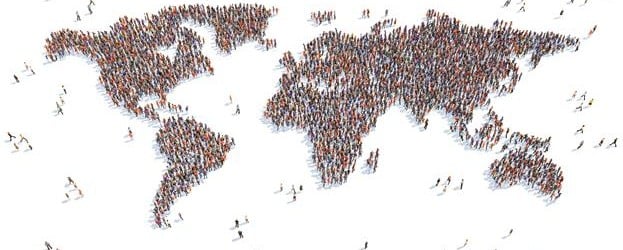The MSCI World Index is one of the most well-known stock indices worldwide. It is well suited when it comes to investing in equities as an asset class without placing too much emphasis on individual regions or markets. MSCI stands for “Morgan Stanley Capital International”, one of the leading US financial analysis and index providers.
More than 1600 shares from 23 industrialized countries
The MSCI World is a “Methuselah” among the stock indices. It has been published since 1970 and has been tracking share performance in a total of 23 industrialized countries. In addition to the economically strongest EU member states, it also includes Norway and Switzerland as well as the USA, Canada and Australia. However, equities of emerging and developing countries are not included.
In total, the MSCI World currently (as of November 30, 2015) includes 1,643 equities with a combined market capitalization of more than 30 trillion US dollars. The largest company in the MSCI World – the software giant Apple – has a market capitalization of 681 billion US dollars, the smallest one comes to 428 million US dollars. The average market capitalization of a stock is approximately 20 billion US dollars. The MSCI World thus primarily involves large and medium-sized companies.
The heavyweight USA in the MSCI World
The composition of the index is reviewed on a quarterly basis and adjusted if necessary. In order to be included in the MSCI World, the market capitalisation must not fall below certain limits. In addition, there must be a sufficient amount of trading in the respective shares. Therefore, only securities that are sufficiently “marketable” and “relevant to the stock exchange” are included. The weighting of the individual shares in the index is based on the market value. The higher the value of a company, the greater its proportion in the MSCI World. Shares are selected in such a way that in each country, approximately 85 percent of the market value of all listed companies is represented. The proportions of individual shares, countries or sectors in the index fluctuate to a certain extent according to the respective price and market development.
The focus of the country weighting is clearly on the USA. The MSCI World thus reflects the fact that the US equity market remains the most important one worldwide. US equities currently account for almost 59 percent of the index, with more than 600 companies included. Japan (8.8 percent) and Great Britain (7.6 percent) follow far behind. In the Continental European stock markets, France (3.8 percent) is still ahead of the almost equivalent countries Germany and Switzerland (3.5 percent each).
In terms of sectors, the financial industry is represented most strongly in the index with a proportion of 20.8 percent. It is followed by the IT sector (14.3 percent) and consumer discretionary (13.4 percent). Other important sectors with proportions of more than 10 percent each are healthcare, industrial goods and consumer staples. All other sectors account for only about one fifth.
An overview of the largest companies
The five largest companies in the index are:
- Apple (USA, IT industry)
- Microsoft (USA, IT industry)
- Exxon (USA, energy industry)
- General Electric (USA, industrial goods)
- Johnson & Johnson (USA, health care)
Among the ten largest MSCI World companies, there is only one non-US company: Nestle from Switzerland. In total, the top ten companies have a market capitalization of almost 3.3 trillion US dollars and an index share of around 10 percent.
Investing in the MSCI World with ETF
ETFs that use the MSCI World as a reference basis are particularly suitable for investing in the MSCI World. ETFs are exchange-traded index funds whose investment strategy is to replicate a specific index as accurately as possible. The fund therefore develops in almost the same way as the reference index. With an MSCI World-ETF, you can profit from the development of the stock markets in the most important industrialized countries. There are several such ETFs on the market from different fund providers. One of the largest in terms of fund volume is the iShares MSCI World UCITS ETF (Dist) (ISIN: IE00B0M62Q58, WKN: A0HGV0).
Compared to conventional funds, ETFs are particularly favourable in terms of running costs. There are no issue or redemption surcharges, but there are fees for stock exchange trading and possibly custody. It is therefore advisable to take advantage of attractive offers on the market. The best ones usually come from online brokers and banks. Here are two offers with interesting conditions:
- For heavy-trader, there are only 0.09 percent order fees, at least 1.99 Euros.
- OnVista charges 0.23 percent of the order volume plus 5.99 Euros, but not more than 39 Euros. In the Freebuy Cash pricing model, however, these fees are only charged when using Freebuys for sales.
- The custody account management is free of charge for both providers.
Further links
Anzeige




